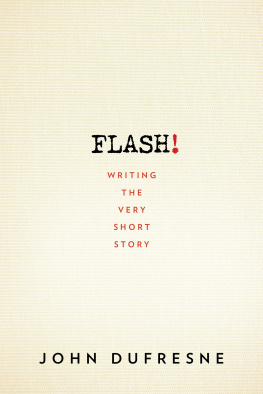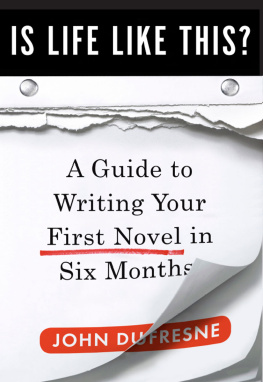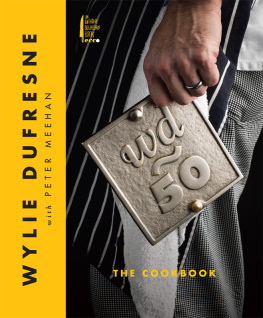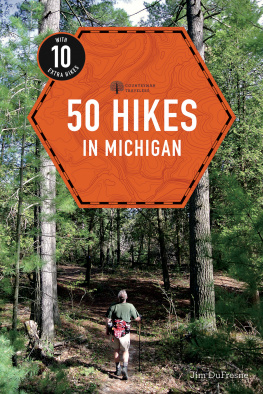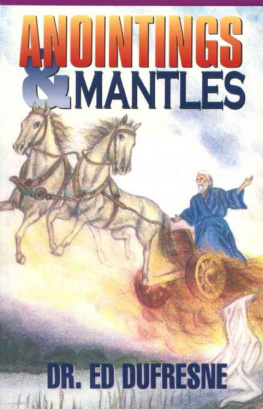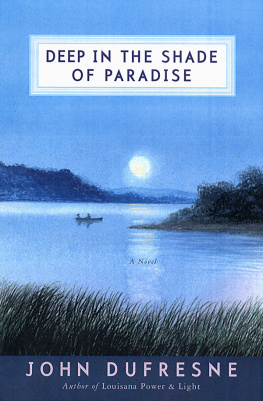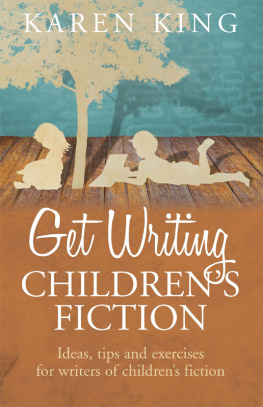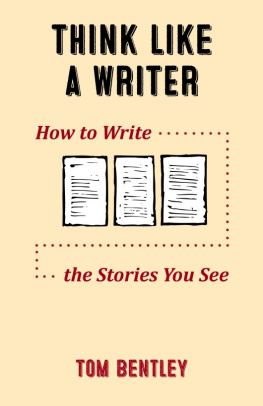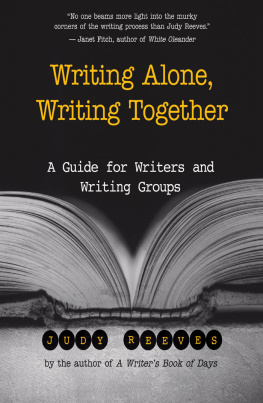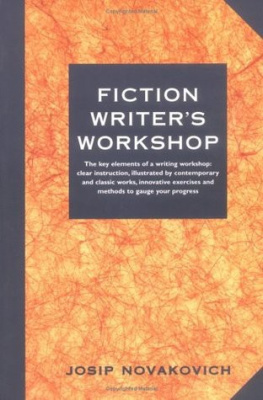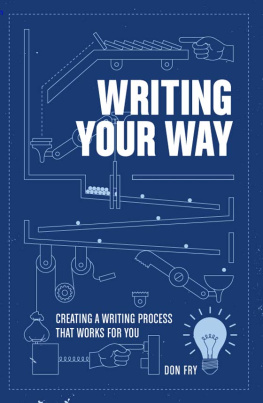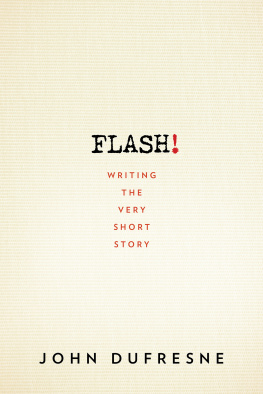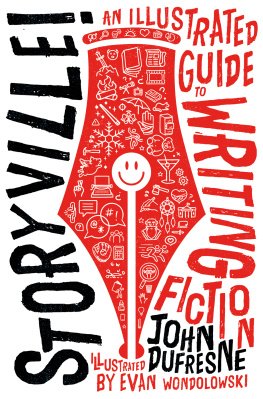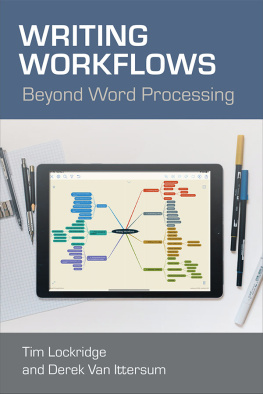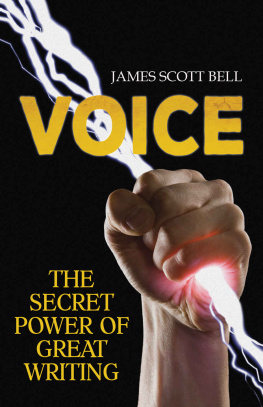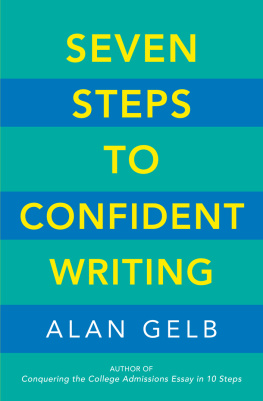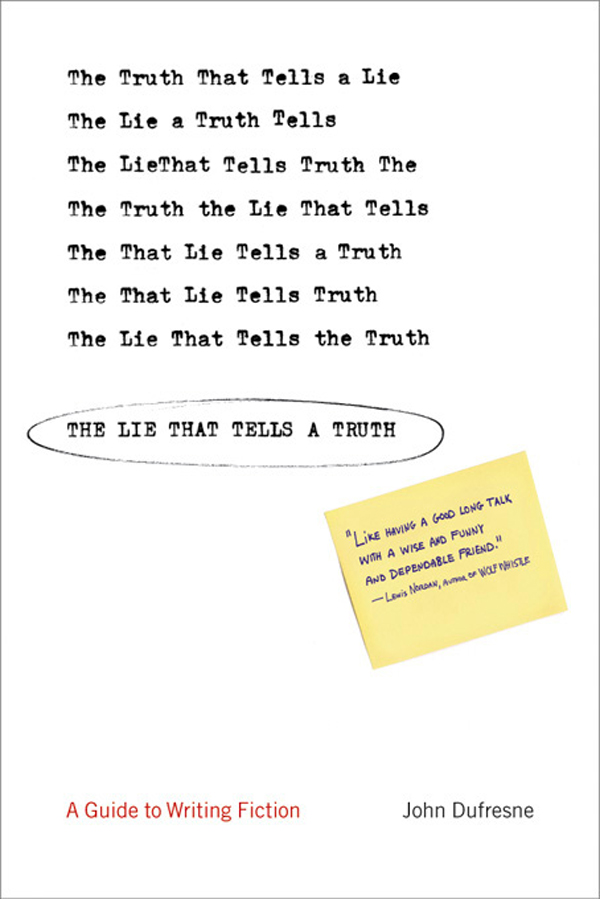
ALSO BY JOHN DUFRESNE
Th e Way That Water Enters Stone
Louisiana Power & Light
Love Warps the Mind a Little
Deep in the Shade of Paradise
W. W. NORTON & COMPANY
New York London
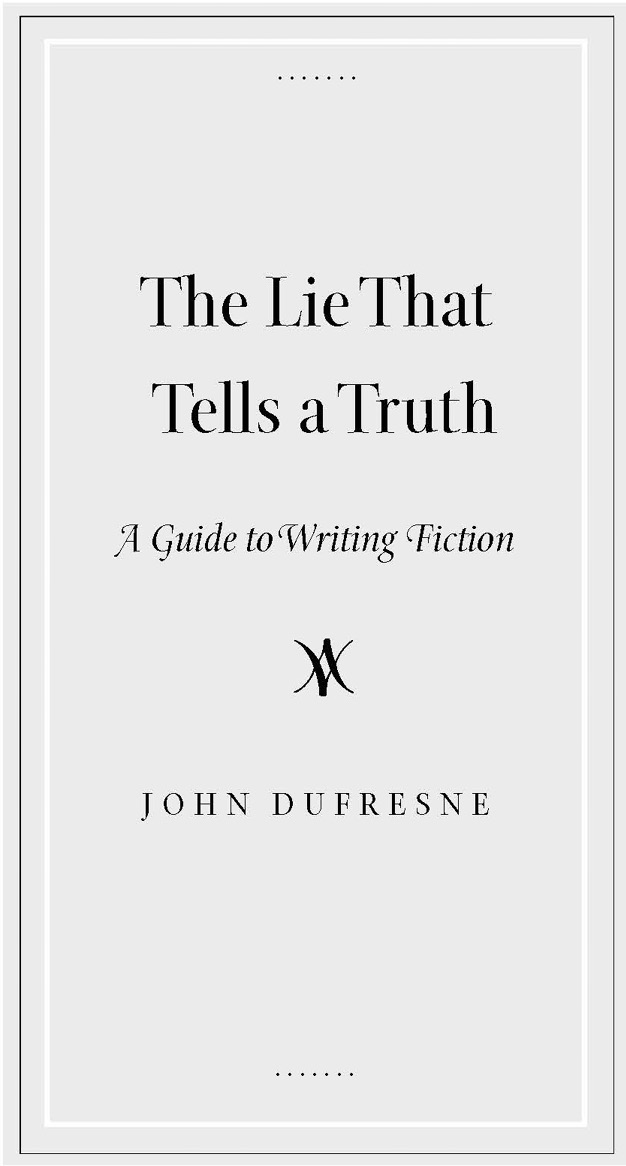
A good traveler has no fixed plans,
and is not intent on arriving.
LAO TZU
For all my teachers and all my students
and for Agnes Berard,
at whose kitchen table I learned to love stories
Contents

Introduction

Every child is an artist. The problem is how to remain an artist when we grow up.
Pablo Picasso
I ll assume that if youre reading this introduction, then you must want to write. Why else would you be loitering around the Writing/Publishing section of the bookstore when all the really interesting and dangerous people are over in the Self-Help/Addiction aisle? (And there are lots of them.) Well, the plain truth is that if you want to write, you can. And if you want to write but you dont write, youre inviting madness. (Kafka said that or something like it.) Wanting to write means, of course, that youre not writing. And wanting to write but not writing will lead to frustration, guilt, and regret. And regret eats the soul. Writing, on the other hand, leads to discovery, insight, and accomplishment. The fact is, its easier to write than it is to want to write. Just pick up your pen, put down a word. Any word.
So whats been stopping you? Maybe you used to write poems and stories (in fact, youve kept them; theyre in a box up in the attic), but then the kids came along and there was simply no time. Or perhaps all you ever wanted to be was a writer, but you succumbed to the wishes of your uncompromising parents, or you listened to your exasperated and very practical significant other or to your own insecurities and you went off to law school, but now, years later, you can feel that old creative ache in your bones. Youre cross-examining a defense witness, and youre thinking, Damn, I could have come up with a better story than this. Where are the details? Or maybe youve never written, though youve always wanted to, because the whole idea of writing seems overwhelming. I mean, Where do I start? Well, the idea of writing is overwhelming; the act of writing, however, is simplicity itself. Maybe youve quit writing a dozen times but find yourself thinking about your old characters again. Or you got your MFA in creative writing but landed this teaching job and all you seem to do these days is grade freshman compositions. Or everyone in your writers group is producing like crazy; everyone but you, that is. And you joined the group to give yourself a kick in the butt. Youre creatively frozen for some reason. Whatever your story is, if you have the itch, its time to scratch.
Johann Sebastian Bach was approached by an admirer outside of St. Thomas School in Leipzig. The enthusiastic young man praised the masters work. Bach smiled. The man said, Can you tell me how I can become a composer? Its my dream.
Bach said, I have no idea.
But, sir, you are a composer.
Bach nodded. But I didnt have to ask.
To be a composer, Bach knew, you write music. No secrets. And when the music is ready, the orchestra will appear.
Now, maybe Bach said what I allege he did to the eager young man or maybe he didnt. I made up the anecdote, but it could have happened. I chose Bach as a subject because he really did say this: Anyone who works as hard as I do, can do as well.
Remember when you were a child, and you were stuck in the house on a rainy day, and Mom sat you at the kitchen table, gave you a pencil, a sharpener, a box of crayons, and a ream of paper, and you went at it? You drew all day long and never got blocked, never concerned yourself with perfection, never worried about repeating yourself. All of your people had triangle noses, brilliant smiles, and arms like the branches of a tree. (You could write a fascinating essay about your childhood drawings, couldnt you? Writing gives you the license to be impractical, to consider the marvelous and the arcane, and at what other moment in your day, in your entire life, do you take your own childhood seriously?) You were so good at this because you were into the fun of it. The play. It didnt matter that only two of your masterpieces made it to the refrigerator door and the others got recycled. It was the making of the art that both compelled and rewarded you. The doing, not the having done . What this book aims to do is get you back into the fun of making things up.
So start writing today. You can begin right now if you remembered to bring a pen alongthere are napkins in the coffee shop. Napkins are for writing. Its not enough to want to be a writer; you need to write, and in doing so become a writer. (Okay, tomorrow, then. Today youll need to buy new pens, some writing tablets, and youll need to create a little office, a writing room or alcove or corner for yourself at home, put up the Do Not Disturb sign. But no later than tomorrow. Excusesweve got a million of them. In the writing world, however, excuses are irrelevant.) There are no classes to register for, no entrance exams to take, no aptitude tests. No one else can or will give you permission to write, so dont even ask. And no one else can stop you. No one to blame, no one to thank.
You dont need to know what a plot is. Well get to that. You dont even need to know what to write aboutyoull get plenty of suggestions. What to write about, I admit, can be very intimidating when you are beginning to learn the craft, but if you do the exercises in this book, youll have generated enough material and characters to keep you happily writing for the rest of your life.
This sounds so easy, but there is a cost. You have to pay for the privilege of writing with your time. But thats not so hard. You only have to want to write as much as you want to watch TV or go to the movies. You manage to get those done. You can probably manage all three. You pay with your time, your patience, your passion, your persistence. And one more thing. You have to be willing to fail, to see that you arent half so clever as you thought you were. (But then, humility is the first step on the road to wisdom.) Theres really nothing mysterious about all this. If you want to hold your novel in your tight little fists in a couple of years, then you have to sit down right now and get to work.
In fact, before you leave the bookstore why dont we wander over to the Self-Help/Addiction aisle and pretend to browse? The air is thicker over here, isnt it? Someones wearing patchouli. Can you believe these titles? Think and Grow Rich (I did; I didnt); Wisdom of the Ages: 60 Days to Enlightenment (Oh, please! Im not opposed to gullibility, but where does it stop?); Get Anyone to Do Anything (An honest self-help book, at least); Lesbian Sex Secrets for Men (Thanks, but no thanks); Power Thought Cards (Power thoughts?); Why Is It Always About You? (Am I whining?); Understanding Your Angels and Meeting Your Guides (My God, I think hes serious); Extended Massive Orgasm (Hmm) . Where were we? Oh, yes, were here for material. So lets eavesdrop.
Did that woman standing alone with Conversations with God in her hand just say what I thought she did? Shes in love with a noodle? You think she said poodle? Or strudel? (Mishearing invites invention.) And whos she talking to anyway? And what about the guy over by the Dr. Phil display? The guy with the headphones on. (Listening to Enya?) Whats on his mind? Okay, hes going to buy the book. So lets picture him at home tonight reading it. Wheres he sitting? Who else is in the house? Does he read with a pen in his hand? With the TV on? Why did he come to the store tonight to buy this particular book? Now youve got the idea. He and the woman who talks alone and that young man over there in the bondage pants and the I Was a Teenage Malcontent T-shirt are characters in our short-story-in-progress, Singles Night at the Book Emporium.
Next page

